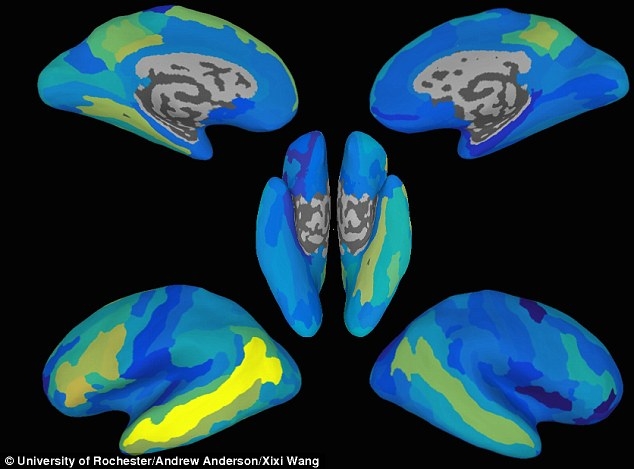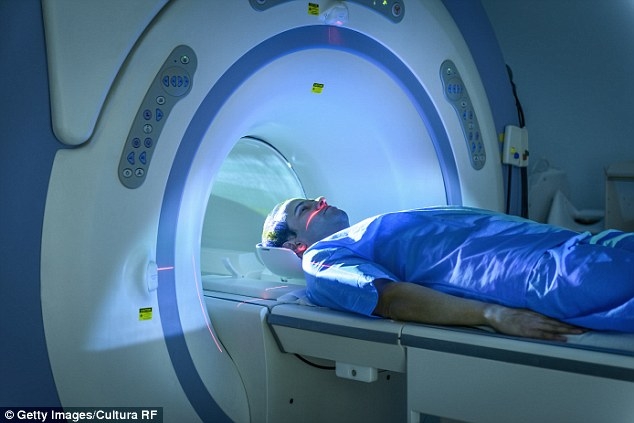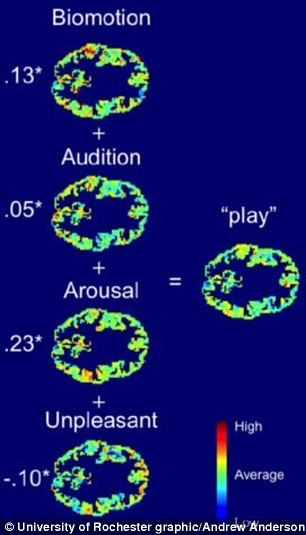According to the author: Richard Gray, author of this article, source dailymail, compiled by Lei Fengwang (search for “Lei Feng Net†public number) , and refused to reprint without permission!

Most people can be completely confidential about what they are going to say until they say the second. But now computers can quickly predict what you think by looking for patterns of brain activity in your brain that are related to what you are about to say—yes, scientists have begun to develop computers that can search for brain activity related to specific words. The program, and this program is used to guess the sentences that people are still conceiving in the brain. The correct rate of this program prediction is about 70%.
Dr Andrew Anderson, a leading scholar in the field at the University of Rochester, said that this technology can be used to help people who have had a stroke to speak normally. "We have found that we can predict the form of brain activity - although not perfect, but our hit rate is no accident." He said, "Although there will be no greater breakthroughs in the present or in the short term, but this research results Ultimately it will help people who have suffered brain trauma and stroke to communicate with people normally. Â
It is well known that patients with stroke often experience nerve trauma, which causes them to lose control of the muscles that help them speak. However, by looking for brain activity related to words and sentences, they can communicate with the outside world through computers.
The research results of these scientists were published in the Cerebral Cortex magazine. They used a brain scanner to perform magnetic resonance experiments on 14 participants. During this process, participants silently read 240 different sentences. For example, "A green car crossed the bridge." The magazine was in the car, "The car accident destroyed the yellow car."
Next, they used a computer system to analyze the scan results in hopes of finding the neural patterns associated with the words in ordinary sentences.
In other words, in the above example, they can filter out the forms of brain activity that can represent the word "car." This allows them to create a "neuronal dictionary." By using a "neuronal dictionary," they can look for similar forms of brain activity in new sentences to predict what people are thinking.

Dr. Anderson said: “We decomposed the sentence's level of brain movements and wanted to establish a predictive system of words. By using fMRI data, we want to know whether it is possible to screen out the form of brain movement that represents a word through a complete sentence. That is to say, we can decompose the sentence, let it present the form of the word, and then use these word elements to predict what kind of form they will appear in the new sentence."
However, the form of brain activity is really too complicated. For example, coffee can produce 65 different forms of brain activity. Dr. Rajeev Raizada, a brain and cognitive scientist at the University of Rochester, is also a participant in this study. He said: "Coffee has a color, taste... coffee feels good for us - it conveys feelings, it has emotions, it even contains social elements. We built on the model of Jeffrey Binder at the Wisconsin Medical School. His own model, he is also the co-author of this paper, he did a lot of investigations and told us a series of words that include the sensory, emotional, social, and other aspects of the element. After bringing these elements together, we from the individual words Towards the whole sentence, this gives us a new direction in our research."

In order to build a computer model, the scientists allowed the participants to experiment with 65 elements that were related to the word, classifying 242 words, including color, noise, happiness, and time. For example, "play" is a word that is positively related to "biological movement," because people must move their bodies when they are playing. However, "play" and "unhappy" must be negatively related, because people are unlikely to be unhappy when playing.
Scientists can also use the form of brain activity in each word to predict new sentence structures. For example, this computer model predicts the form of brain activity in the phrase “this family plays on the beach†even if it has never seen this sentence before—yes, it is only in things such as “this beach is empty†and “ The young girl saw the same word in a sentence that was completely different in the context of playing football, and nothing more.
Via dailymail